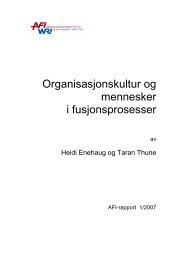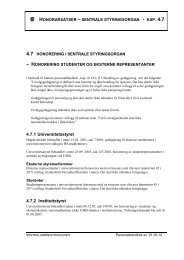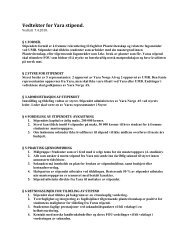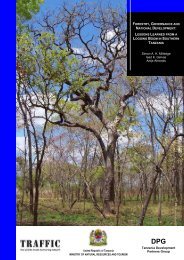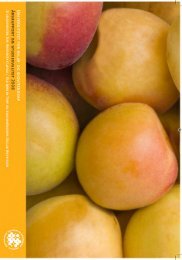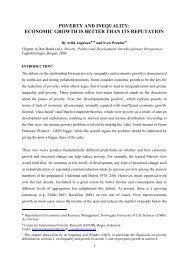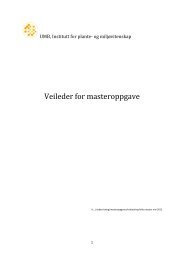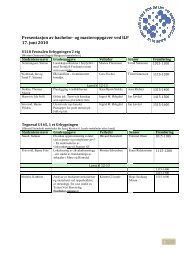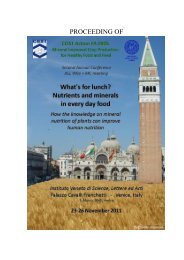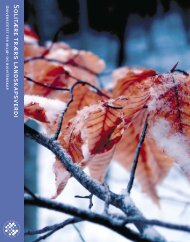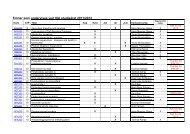Sustaining Livelihoods through Organic Agriculture in Tanzania - UMB
Sustaining Livelihoods through Organic Agriculture in Tanzania - UMB
Sustaining Livelihoods through Organic Agriculture in Tanzania - UMB
You also want an ePaper? Increase the reach of your titles
YUMPU automatically turns print PDFs into web optimized ePapers that Google loves.
Chapter One: Introduction<br />
In an effort to address the rema<strong>in</strong><strong>in</strong>g gaps <strong>in</strong> our knowledge of the livelihood benefits<br />
to resource-poor smallholder farmers of organic certification and trade, this study<br />
applies action research approaches to the develop<strong>in</strong>g organic sector <strong>in</strong> <strong>Tanzania</strong>. The<br />
overall aim is to assess and enhance organic agriculture’s contribution to susta<strong>in</strong>able<br />
livelihoods and food security amongst Complex, Diverse and Risk-prone (CDR)<br />
smallholders <strong>in</strong> <strong>Tanzania</strong>.<br />
The central research question of this study, ‘In what ways can organic agriculture be<br />
developed for the benefit of the smallholder <strong>in</strong> <strong>Tanzania</strong>?’ has been addressed <strong>through</strong><br />
two whole-project case studies and multi-stakeholder <strong>in</strong>volvement, the ma<strong>in</strong> methods<br />
adopted to analyse the dynamics of organic agriculture at the local and national levels<br />
respectively. The ma<strong>in</strong> research question can be broken down <strong>in</strong>to three <strong>in</strong>strumental<br />
questions:<br />
1. What is the impact of organic agriculture on smallholder livelihoods?<br />
2. By which pathways does organic agriculture lead to livelihood benefits?<br />
3. Which strategies can be adopted to strengthen these pathways?<br />
A three-phase research process, which has moved from case studies, key <strong>in</strong>formant<br />
<strong>in</strong>terviews and field visits at the local level, to a national-level stakeholder forum and<br />
then to verification and presentation of f<strong>in</strong>d<strong>in</strong>gs back at the local level, considers the<br />
structure and function<strong>in</strong>g of organic systems at both spatial scales. Fieldwork was<br />
carried out <strong>in</strong> <strong>Tanzania</strong> over four months and was arranged under the Programme for<br />
Agricultural and Natural Resources Transformation for Improved <strong>Livelihoods</strong><br />
(PANTIL) <strong>in</strong>volv<strong>in</strong>g collaboration between the Norwegian University of Life<br />
Sciences (<strong>UMB</strong>) and Soko<strong>in</strong>e University of <strong>Agriculture</strong> (SUA) <strong>in</strong> <strong>Tanzania</strong>.<br />
In the tradition of action research, the researcher moves beyond reflection <strong>in</strong>to action<br />
plann<strong>in</strong>g <strong>in</strong> collaboration with key actors, the outcome of which is the participatory<br />
formulation of strategies for <strong>in</strong>dividual and jo<strong>in</strong>t actions to strengthen the organic<br />
sector.<br />
8




